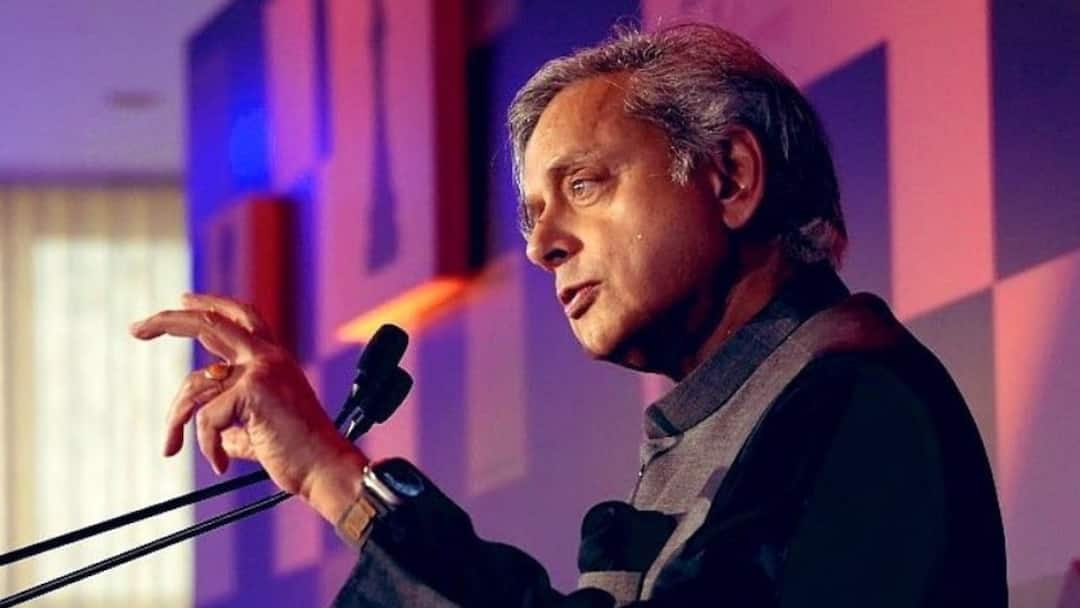Congress MP Shashi Tharoor has sharply criticised the prevalence of dynastic politics in India, calling it a “grave threat” to democracy and urging the country to embrace meritocracy.
In his article “Indian Politics Are a Family Business” on the Project Syndicate portal, Tharoor described dynastic politics as detrimental to Indian democracy and asserted that it was “high time” the nation moved towards “merit-based leadership.” The remarks are being seen as a swipe at both the Congress high command and INDIA bloc allies such as the Samajwadi Party (SP), Rashtriya Janata Dal (RJD) and Shiv Sena (UBT).
Criticism Of Congress And Other Political Families
Tharoor traced the roots of dynastic politics from India’s first Prime Minister Jawaharlal Nehru to Indira Gandhi, Rajiv Gandhi, and current leaders Rahul Gandhi and Priyanka Gandhi Vadra, stating that the Nehru-Gandhi family had “cemented the idea that political leadership can be a birthright.”
“For decades, one family has towered over Indian politics,” he wrote, arguing that while the Nehru-Gandhi dynasty’s legacy is linked with India’s freedom struggle, it has also normalised hereditary leadership.
He also called out several INDIA bloc allies for perpetuating dynastic politics — mentioning Shiv Sena (UBT) chief Uddhav Thackeray and his son Aaditya Thackeray; Samajwadi Party leader Akhilesh Yadav, son of former Uttar Pradesh CM Mulayam Singh Yadav; and the Abdullah family in Jammu and Kashmir, where three generations have led the region’s politics.
In Tamil Nadu, Tharoor pointed to Chief Minister M.K. Stalin, son of the late M. Karunanidhi, noting that the family “controls” the ruling Dravida Munnetra Kazhagam (DMK) party.
Dynastic Politics Across Party Lines
Tharoor stressed that political inheritance extended beyond the Congress and its allies. “While the Nehru-Gandhi family is associated with the Indian National Congress, dynastic succession prevails across the political spectrum,” he wrote.
He cited examples such as Biju Patnaik’s son, Naveen Patnaik, who succeeded his father in politics and went on to form the Biju Janata Dal, serving as Odisha’s Chief Minister for over two decades.
Tharoor also highlighted how in the NDA, Lok Janshakti Party leader Ram Vilas Paswan was succeeded by his son Chirag Paswan. “The Maharashtra-based Shiv Sena’s founder, Bal Thackeray, passed the leadership mantle to his son Uddhav, whose own son, Aaditya, is waiting visibly in the wings,” he added.
‘Financial And Organisational Advantage Of Dynasts’
According to Tharoor, political dynasts enjoy a significant advantage over newcomers because of their financial capital and entrenched political networks.
“Dynastic families typically possess considerable financial capital, which they have accumulated over years in power. Moreover, they have access to ready-made election machinery, including networks of donors, party workers, and local thugs,” he wrote.
He warned that this sense of entitlement allows dynasts to maintain control despite electoral setbacks. “This sense of entitlement is so powerful that it can overshadow even a poor track record, enabling dynasts to remain at the helm of their parties despite successive electoral defeats,” Tharoor observed.
Call For Political Reform And Meritocracy
Tharoor emphasised that when political power is determined by lineage rather than merit, “the quality of governance suffers.”
“When political power is determined by lineage, rather than ability, commitment, or grassroots engagement, the quality of governance suffers. Drawing from a smaller talent pool is never advantageous,” he stated, concluding that “dynastic politics pose a grave threat to Indian democracy.”
He urged structural reforms to ensure fair competition and strengthen internal party democracy. “This would require fundamental reforms, from imposing legally mandated term limits to requiring meaningful internal party elections, together with a concerted effort to educate and empower the electorate to choose leaders based on merit,” he wrote, adding that only then could India realise the promise of “government of the people, by the people, for the people.”
BJP Responds, Backs Tharoor’s Remarks
The BJP used Tharoor’s article to target the Congress and the Mahagathbandhan in Bihar, referring to Rahul Gandhi and Tejashwi Yadav as “nepo kids.”
BJP spokesperson Shehzaad Poonawalla shared Tharoor’s article on X, calling it “very insightful” and remarking, “He has launched a direct attack on India’s Nepo kid Rahul & Chota nepo kid Tejashwi Yadav!”
“This is why Naamdars of Congress hate Kaamdar Chaiwala PM Modi,” Poonawalla added, wondering “what repercussions will follow against Dr Tharoor for speaking so candidly.”
Tharoor’s Previous Remarks On PM Modi
Tharoor has previously faced criticism within his party for comments seen as complimentary to Prime Minister Narendra Modi.
Following a delegation visit to the United States, Panama, Guyana, Brazil, and Colombia after Operation Sindoor, Tharoor had written that PM Modi’s “energy, dynamism and willingness to engage remain a prime asset for India on the global stage, but deserve greater backing.”



